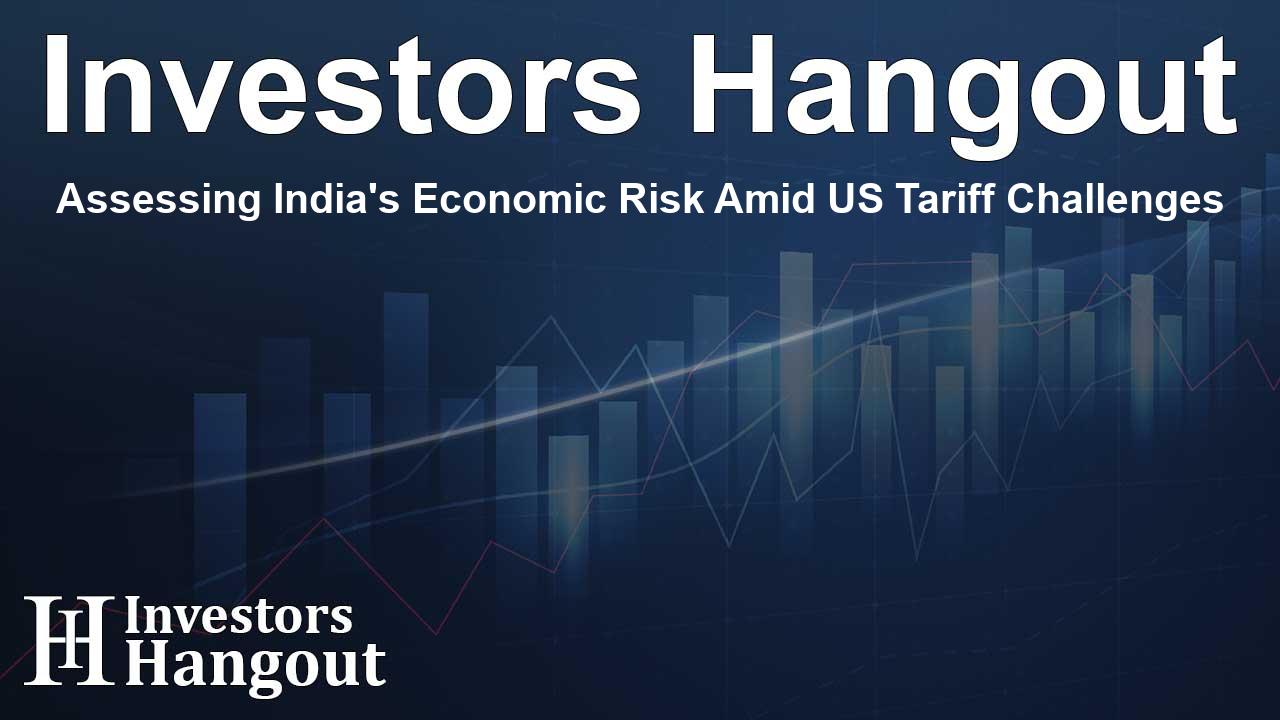Assessing India's Economic Risk Amid US Tariff Challenges

India's Crucial Economic Decisions Under Tariff Threats
In recent discussions on international trade, India finds itself at a crossroads. The latest imposition of a 25% tariff on Indian imports by the U.S. for continuing to import discounted Russian crude oil has raised eyebrows among economists. Many are questioning whether ignoring the U.S. government's calls could be a wise strategic move for India.
The Potential Cost of Tariffs
The U.S. is India's largest export destination, with exports reaching approximately $86.5 billion in a recent fiscal year. In comparison, the financial advantage from Russian crude oil imports only amounted to about $3.8 billion. This disparity has led experts to wonder if the short-term gains from discounted oil justify the risks involved in jeopardizing significant export revenues.
Economists Weigh In
Warren Patterson, head of commodities strategy at ING in Singapore, raised a critical question regarding the ongoing situation: "Are you going to risk up to $87 billion worth of exports to the U.S. to save a few billion from oil discounts?" This perspective underscores the gravity of the trade-off involved and suggests that India might be gambling with its economic future.
Impact on India's GDP
Furthermore, the tariffs could exert considerable pressure on India's GDP, with U.S. consumer spending accounting for roughly 2% of the Indian economy. Shilan Shah, deputy chief emerging markets economist at Capital Economics, noted that the tariffs could have a significant impact on India’s economic landscape.
Competition from Other Countries
India also faces increased competition from countries like Vietnam, Indonesia, and Bangladesh, which are providing similar products to the U.S. markets at lower tariff rates due to favorable trade agreements. This competitive dynamic could squeeze Indian exporters even further, making the stakes of the tariff situation even higher.
Government's Response to Tariffs
In the wake of these challenges, Indian Prime Minister Narendra Modi has publicly committed to safeguarding farmers' interests, especially in light of the increasing tariff threats. Modi declared, "For us, the interest of our farmers is our top priority" and vowed to never compromise on their welfare, highlighting the government's dedication to protecting its citizens' livelihoods.
Risks of Economic Decisions
Economist Peter Schiff commented on the implications of the increased tariffs, warning that the actions could potentially weaken the U.S. dollar and indirectly harm American consumers. Schiff cautioned that such economic policies might benefit other countries, particularly those in the BRIC coalition, while detrimentally affecting U.S. consumers.
Looking Ahead: Strategic Considerations
As India contemplates its next steps amid this economic turmoil, the country must weigh the potential ramifications of ignoring U.S. tariff threats against the backdrop of lost export revenue. The decisions made today will likely shape the economic landscape for years to come. Stakeholders in India are urged to consider not just short-term benefits but the broader implications of their trading strategies.
Frequently Asked Questions
What are the main challenges India is facing regarding U.S. tariffs?
India is grappling with the risk of losing significant export revenues to the U.S. due to punitive tariffs while trying to secure cheaper oil imports from Russia.
How much does U.S. spending impact India's GDP?
U.S. consumer spending is estimated to drive about 2% of India's GDP, meaning tariffs could substantially affect economic growth.
What is Prime Minister Modi's stance on these tariffs?
Prime Minister Modi has expressed a strong commitment to protecting farmers' interests, prioritizing their welfare in the face of increased tariffs.
Who are India's main competitors in the U.S. market?
India faces competition from Vietnam, Indonesia, and Bangladesh, which can offer similar products at lower tariffs due to advantageous trade agreements.
What might be the long-term effects of these trade decisions?
The decisions made regarding tariffs and trade relationships could have lasting impacts on India's economy, influencing future trade relationships and export revenues.
About The Author
Contact Dominic Sanders privately here. Or send an email with ATTN: Dominic Sanders as the subject to contact@investorshangout.com.
About Investors Hangout
Investors Hangout is a leading online stock forum for financial discussion and learning, offering a wide range of free tools and resources. It draws in traders of all levels, who exchange market knowledge, investigate trading tactics, and keep an eye on industry developments in real time. Featuring financial articles, stock message boards, quotes, charts, company profiles, and live news updates. Through cooperative learning and a wealth of informational resources, it helps users from novices creating their first portfolios to experts honing their techniques. Join Investors Hangout today: https://investorshangout.com/
The content of this article is based on factual, publicly available information and does not represent legal, financial, or investment advice. Investors Hangout does not offer financial advice, and the author is not a licensed financial advisor. Consult a qualified advisor before making any financial or investment decisions based on this article. This article should not be considered advice to purchase, sell, or hold any securities or other investments. If any of the material provided here is inaccurate, please contact us for corrections.
